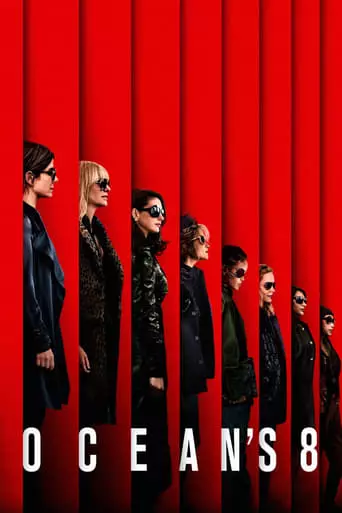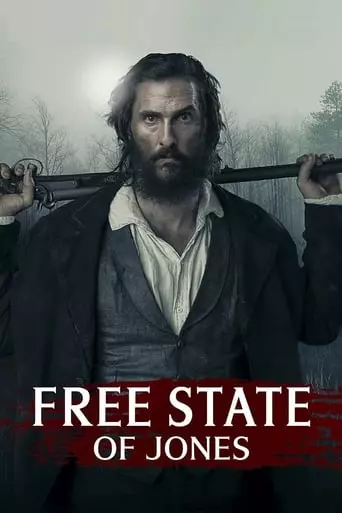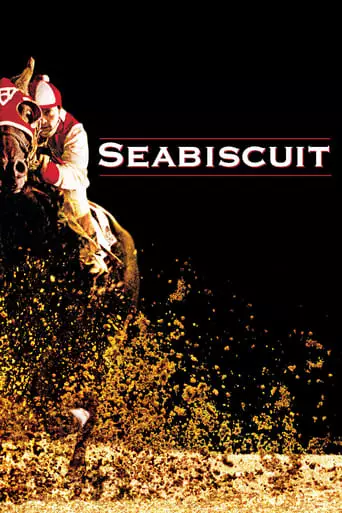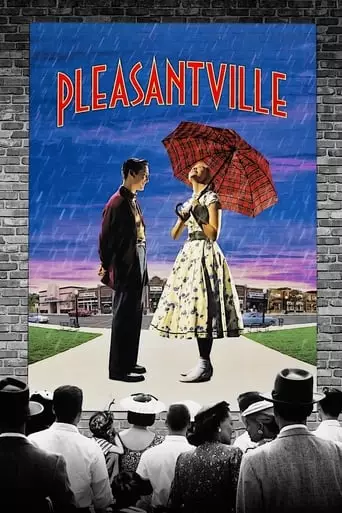Debbie Ocean, a criminal mastermind, gathers a crew of female thieves to pull off the heist of the century at New York’s annual Met Gala. Ocean’s Eight is a 2018 […]

Debbie Ocean, a criminal mastermind, gathers a crew of female thieves to pull off the heist of the century at New York’s annual Met Gala. Ocean’s Eight is a 2018 […]

In 1863, Mississippi farmer Newt Knight serves as a medic for the Confederate Army. Opposed to slavery, Knight would rather help the wounded than fight the Union. After his nephew […]

True story of the undersized Depression-era racehorse whose victories lifted not only the spirits of the team behind it but also those of their nation. Seabiscuit is a 2003 American […]

Geeky teenager David and his popular twin sister, Jennifer, get sucked into the black-and-white world of a 1950s TV sitcom called Pleasantville, and find a world where everything is peachy […]

Every year in the ruins of what was once North America, the nation of Panem forces each of its twelve districts to send a teenage boy and girl to compete […]
Gary Ross: The Visionary Storyteller Behind The Hunger Games and Pleasantville
Gary Ross is an acclaimed American filmmaker, screenwriter, and producer known for his ability to craft engaging and emotionally resonant stories that explore human nature, societal dynamics, and the power of change. With a career spanning multiple genres, Ross has delivered critically and commercially successful films such as Pleasantville (1998), Seabiscuit (2003), and The Hunger Games (2012). His work is marked by a keen understanding of character, a flair for world-building, and a commitment to thought-provoking storytelling.
Early Life and Career Beginnings
Gary Ross was born on November 3, 1956, in Los Angeles, California, into a family with a strong connection to storytelling. His father, Arthur A. Ross, was an Oscar-nominated screenwriter known for his work on Brubaker (1980) and Creature from the Black Lagoon (1954). Growing up in a creative environment, Ross developed a passion for writing and storytelling.
Before transitioning to filmmaking, Ross began his career as a novelist and political speechwriter. His early experiences in politics and activism shaped his perspective and often informed the social and political themes in his films. Ross eventually turned to screenwriting, where his knack for creating compelling narratives quickly gained recognition.
Breakthrough as a Screenwriter
Ross’s breakthrough came with the screenplay for Big (1988), a heartfelt fantasy-comedy about a boy who magically becomes an adult overnight. Starring Tom Hanks, the film was both a critical and commercial success, earning Ross an Academy Award nomination for Best Original Screenplay. The film’s blend of humor, heart, and whimsy showcased Ross’s ability to connect with audiences on an emotional level.
He followed this with the screenplay for Dave (1993), a political comedy about an ordinary man who is recruited to impersonate the U.S. President. The film, directed by Ivan Reitman, was another success, praised for its wit and its optimistic take on leadership and democracy.
Directorial Debut: Pleasantville (1998)
Ross made his directorial debut with Pleasantville, a visually inventive and thematically rich film that he also wrote. The story follows two modern teenagers (Tobey Maguire and Reese Witherspoon) who are transported into the black-and-white world of a 1950s sitcom. As they introduce new ideas and emotions to the town, its monochrome world gradually transforms into vibrant color.
Pleasantville is a meditation on conformity, individuality, and the transformative power of art and emotion. The film received critical acclaim for its innovative use of color, its nuanced performances, and its thought-provoking commentary on societal change. Ross earned multiple award nominations for his work, solidifying his reputation as a filmmaker with a unique vision.
Seabiscuit (2003): A Tale of Hope and Resilience
Ross’s next directorial effort was Seabiscuit, an adaptation of Laura Hillenbrand’s bestselling book about the legendary racehorse that became a symbol of hope during the Great Depression. The film starred Tobey Maguire, Jeff Bridges, and Chris Cooper, and it masterfully blended historical context with an inspiring underdog story.
Seabiscuit was both a critical and commercial success, earning seven Academy Award nominations, including Best Picture and Best Adapted Screenplay for Ross. The film’s themes of perseverance and redemption resonated with audiences, and its sweeping cinematography and heartfelt performances further cemented Ross’s reputation as a skilled storyteller.
The Hunger Games (2012): A Cultural Phenomenon
Ross reached new heights of commercial success with The Hunger Games, the highly anticipated adaptation of Suzanne Collins’s dystopian novel. Starring Jennifer Lawrence as Katniss Everdeen, the film depicts a brutal society where teenagers are forced to compete in a televised fight to the death.
Ross not only directed the film but also co-wrote the screenplay, ensuring that the adaptation remained faithful to the novel’s themes of survival, rebellion, and social inequality. The Hunger Games was a massive box office success, grossing nearly $700 million worldwide and launching a blockbuster franchise. Critics praised Ross’s direction for its grounded approach, intense action sequences, and focus on character development.
Despite the film’s success, Ross opted not to direct the sequels, citing the demanding production schedule. However, his work on the first installment laid the foundation for the series’ continued success and cultural impact.
Later Work: Free State of Jones (2016) and Beyond
In 2016, Ross wrote and directed Free State of Jones, a historical drama based on the true story of Newton Knight (played by Matthew McConaughey), a Confederate deserter who led a rebellion against the Confederacy in Mississippi. The film explores themes of race, class, and resistance, reflecting Ross’s continued interest in socially conscious storytelling. While it received mixed reviews, critics acknowledged its ambitious scope and timely subject matter.
Ross also directed Ocean’s 8 (2018), a spinoff of the Ocean’s franchise featuring an all-female ensemble cast led by Sandra Bullock, Cate Blanchett, and Anne Hathaway. The film combined heist thrills with humor and style, becoming a box office success and further showcasing Ross’s versatility as a director.
Style and Themes
Gary Ross’s films are characterized by their strong narratives, well-drawn characters, and thematic depth. Common themes in his work include:
Social Change: From Pleasantville to Free State of Jones, Ross often explores societal transformation and the struggle for equality and justice.
Underdog Stories: Many of his films, including Seabiscuit and The Hunger Games, celebrate the resilience and triumph of individuals facing overwhelming odds.
Visual Storytelling: Ross’s films frequently employ innovative visual techniques, such as the use of color in Pleasantville, to enhance their emotional and thematic impact.
Legacy and Influence
Gary Ross’s contributions to cinema span a wide range of genres and themes, but his commitment to storytelling and his ability to connect with audiences remain constant. His work has left a lasting impact on popular culture, from the enduring appeal of Pleasantville to the cultural phenomenon of The Hunger Games. As a filmmaker who combines entertainment with substance, Ross continues to be a respected and influential figure in Hollywood.
Conclusion
Gary Ross is a filmmaker who understands the power of stories to inspire, challenge, and entertain. Whether exploring the quiet transformations of a 1950s sitcom world or the fiery rebellion of a dystopian heroine, Ross brings a thoughtful and passionate approach to his craft. With a career defined by creativity and versatility, he has established himself as one of the most compelling storytellers of his generation.